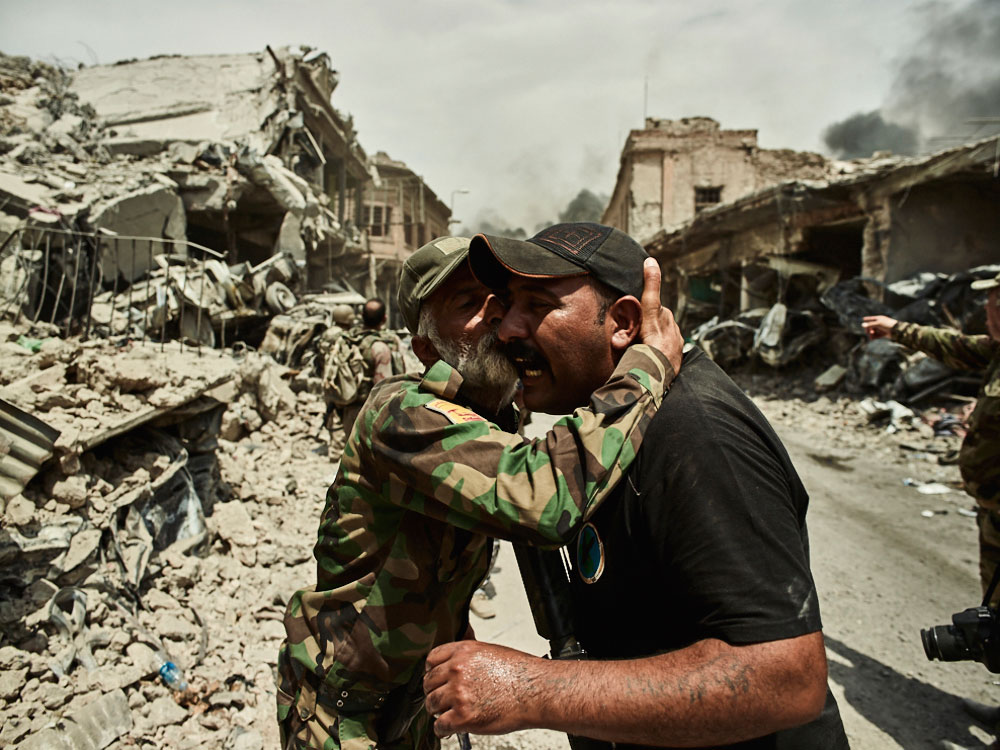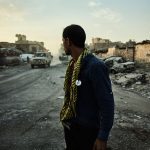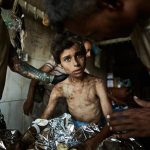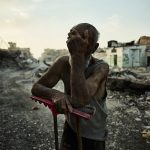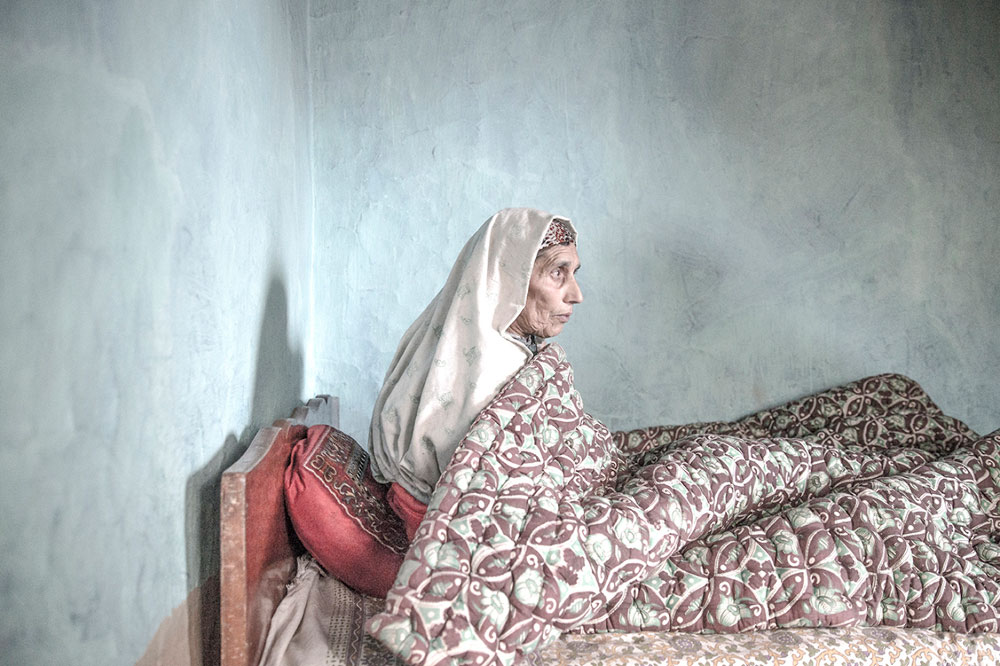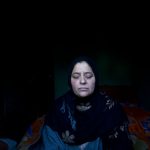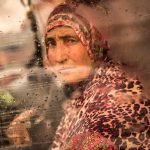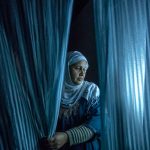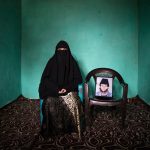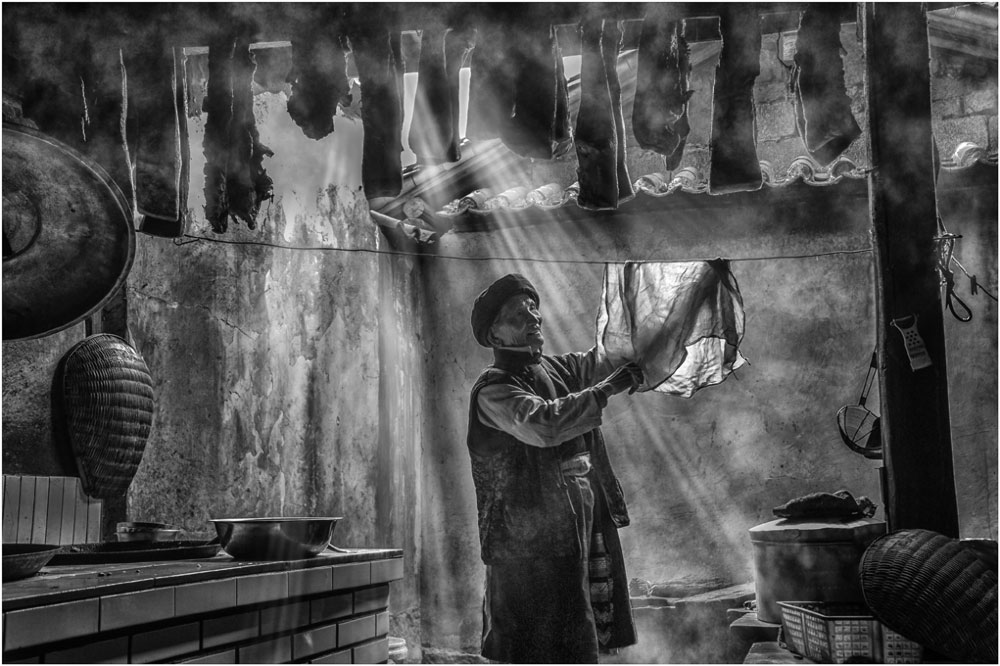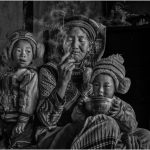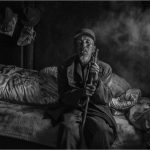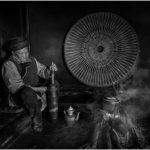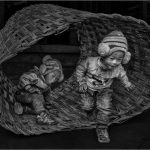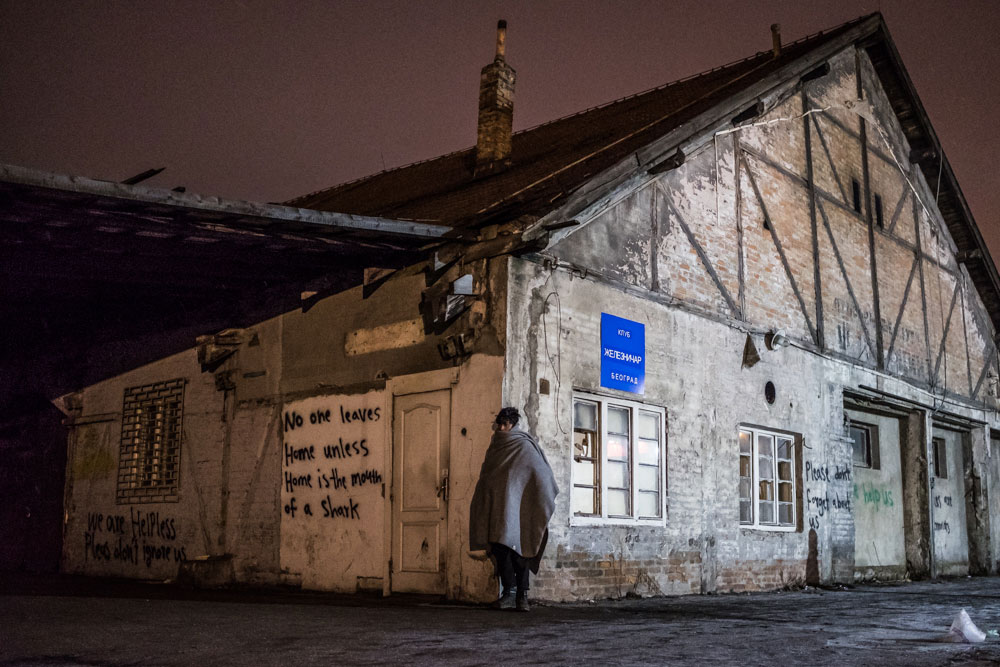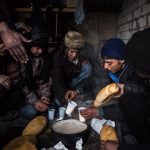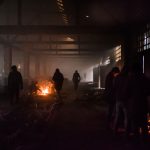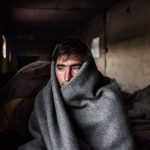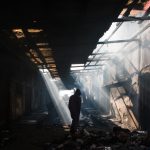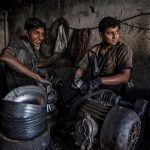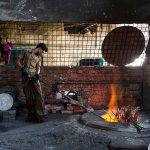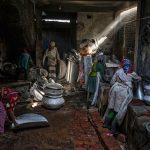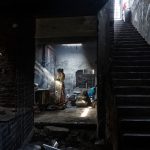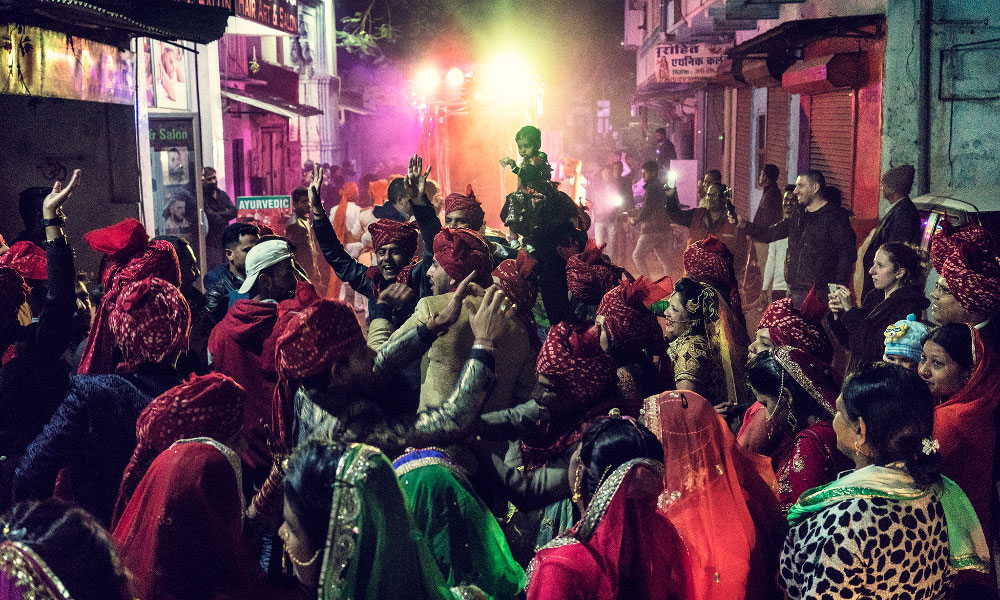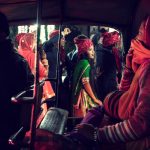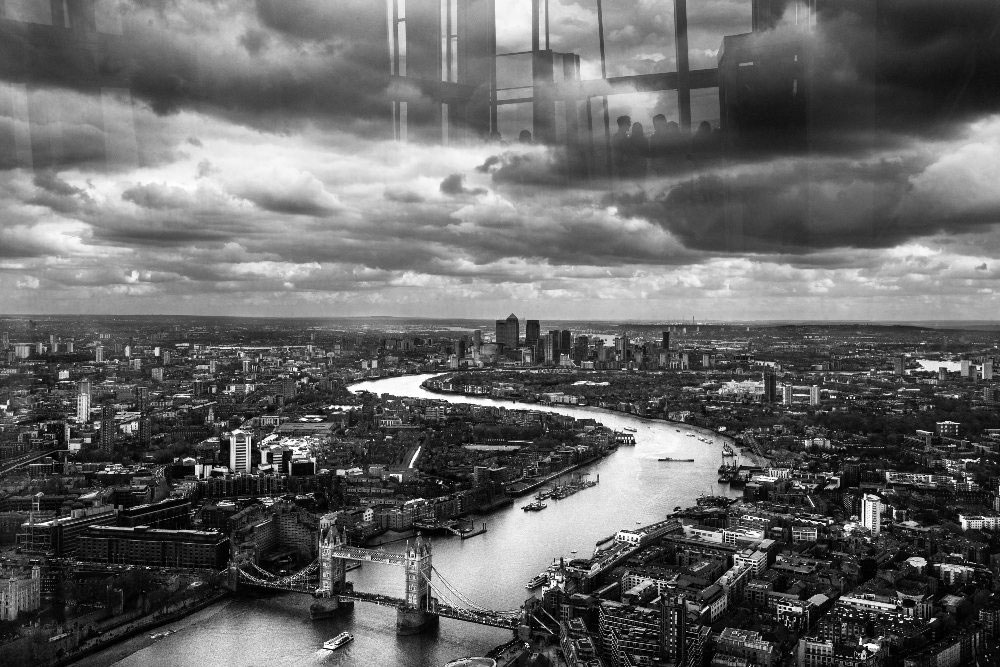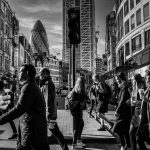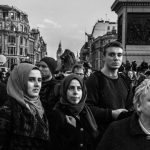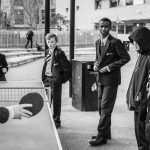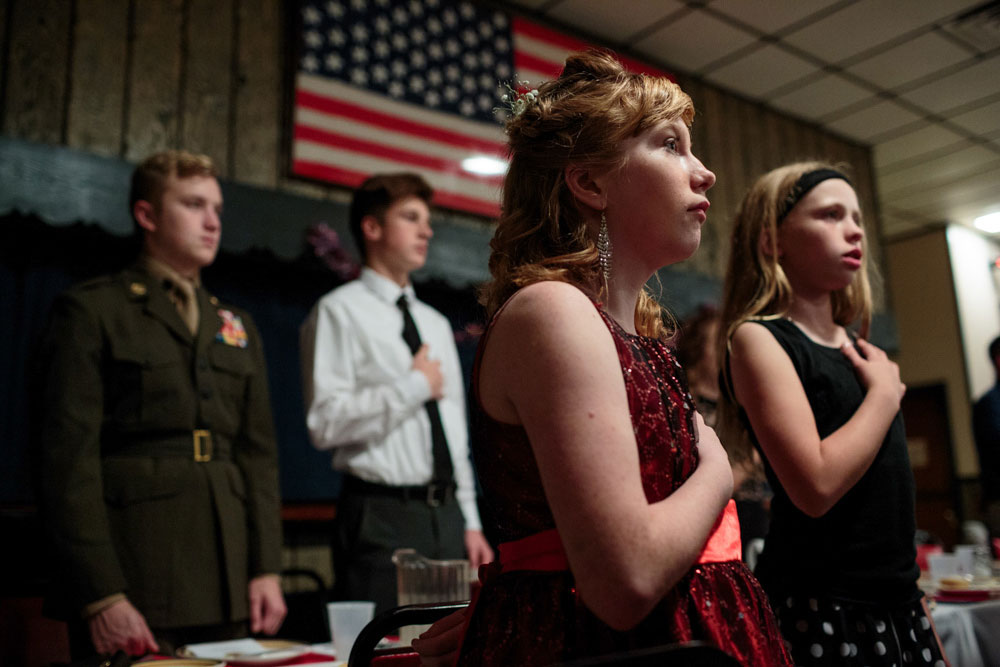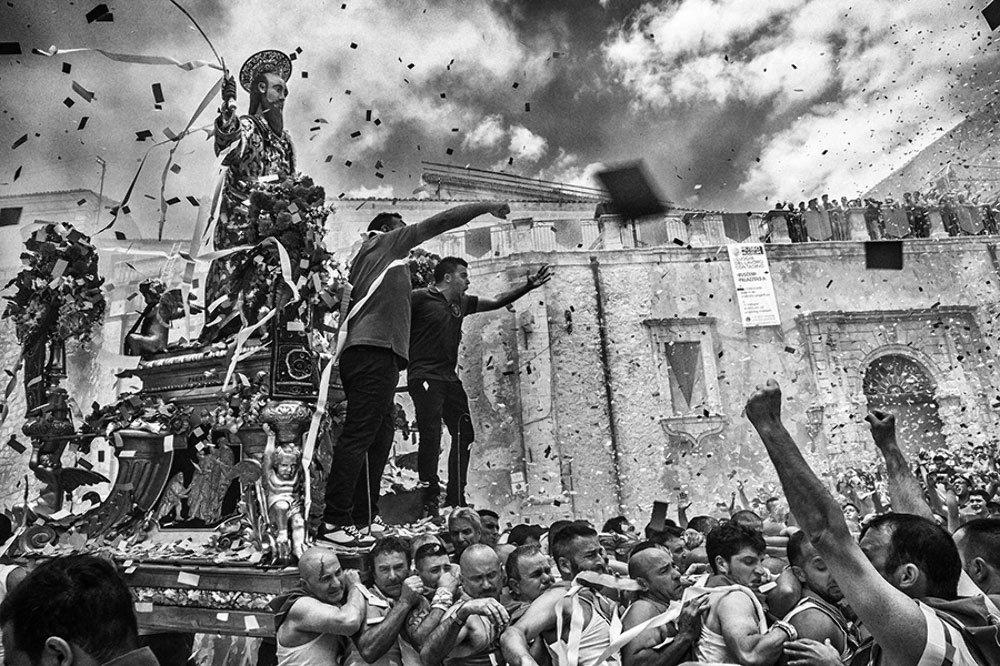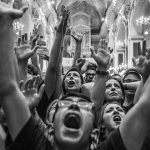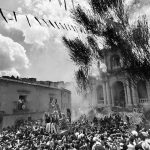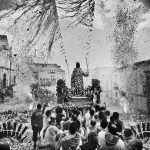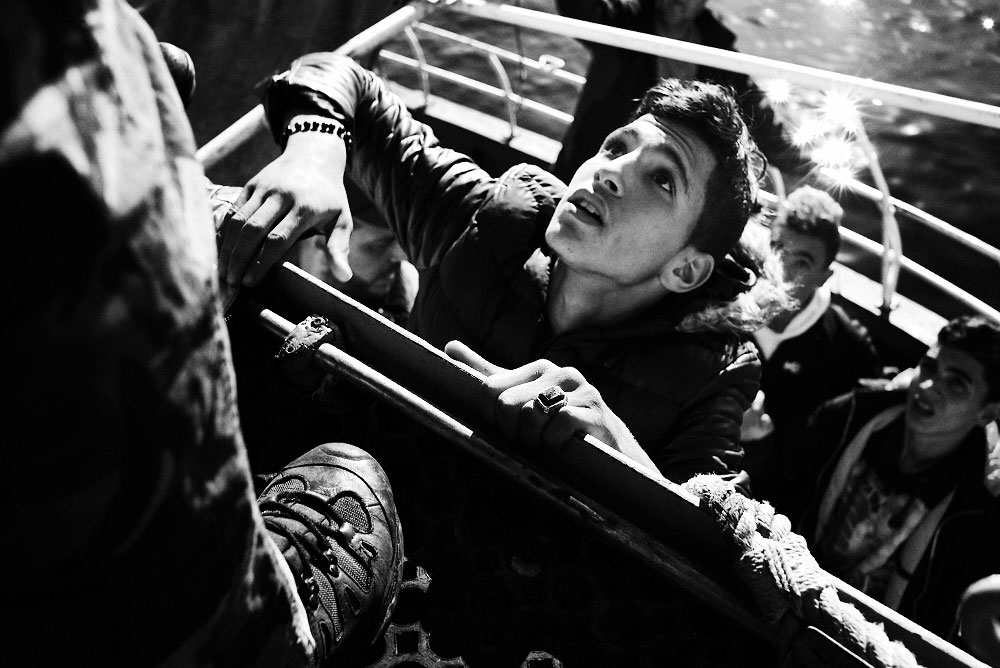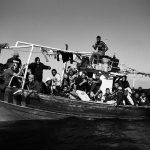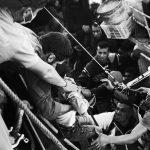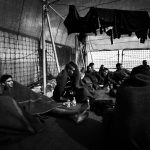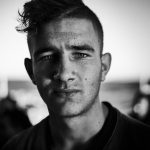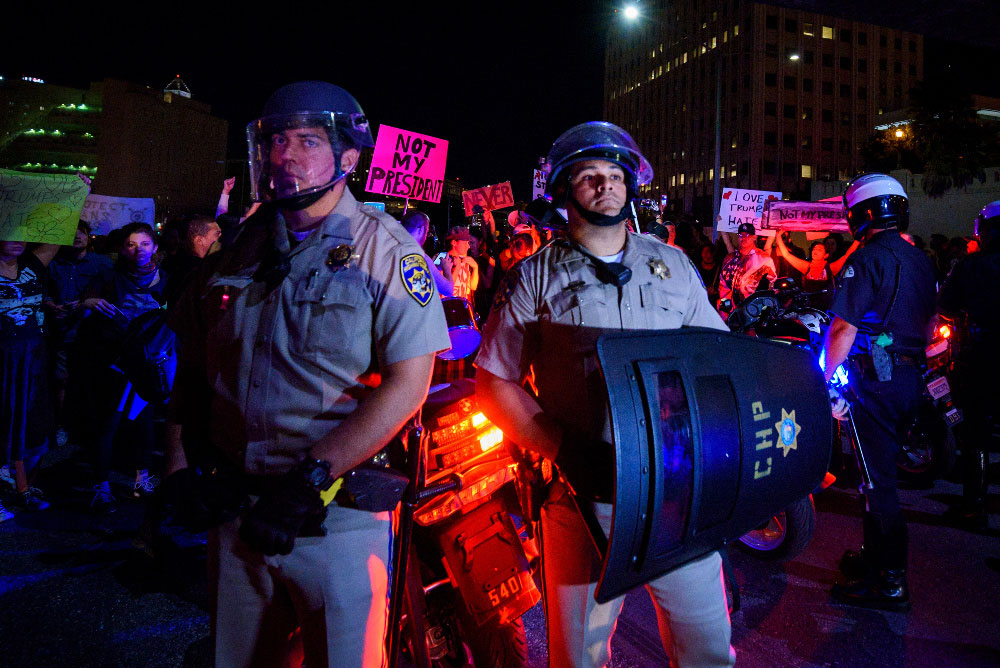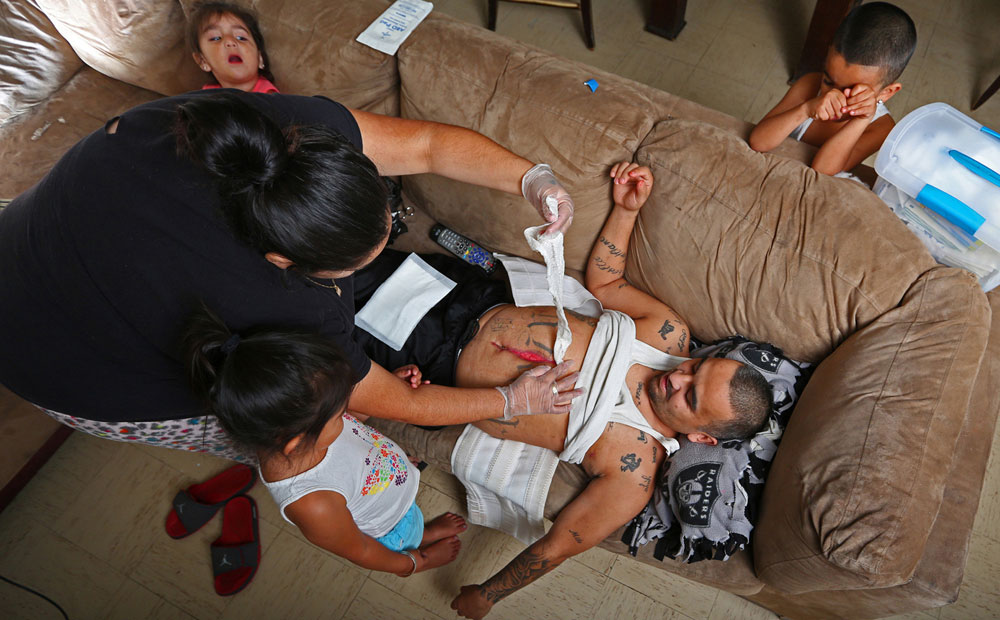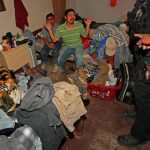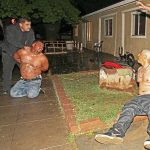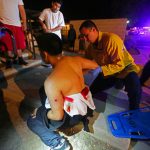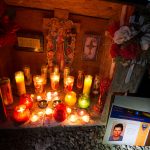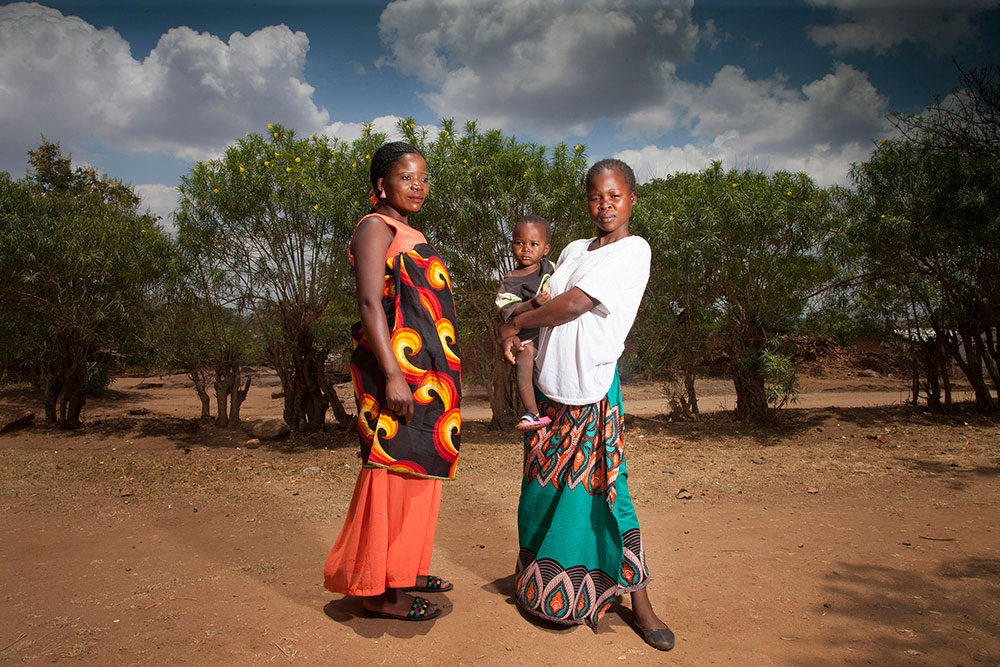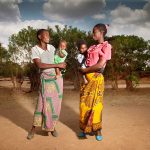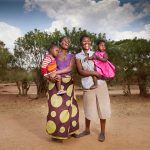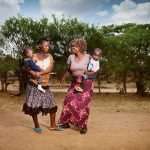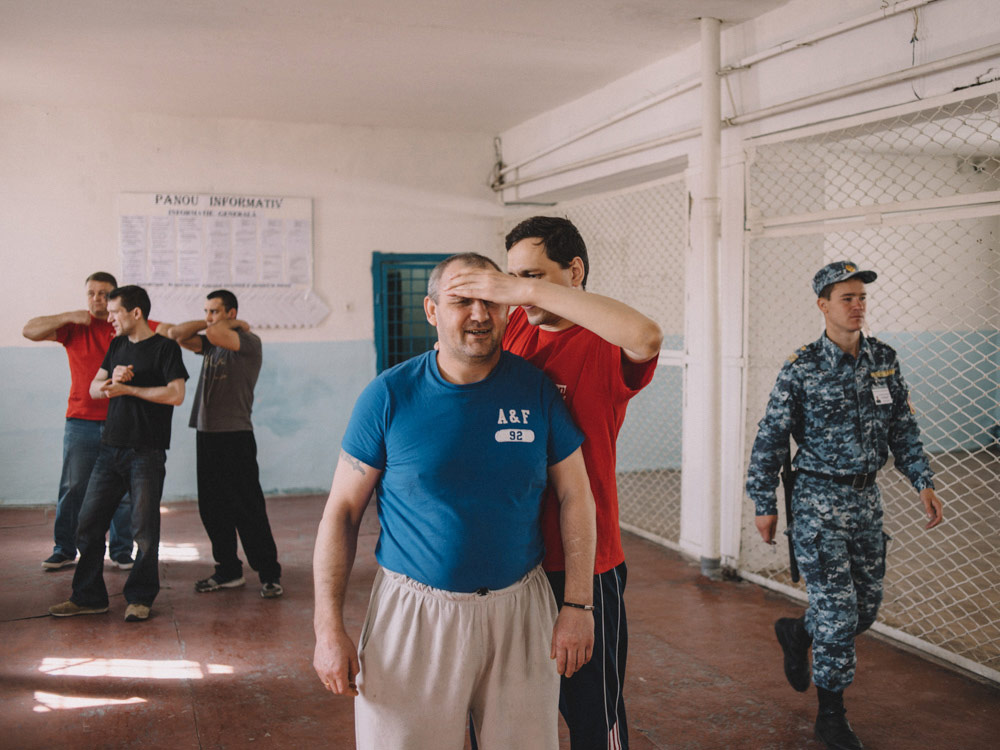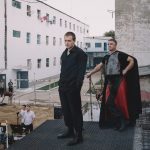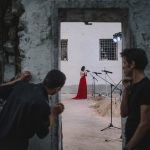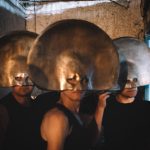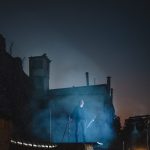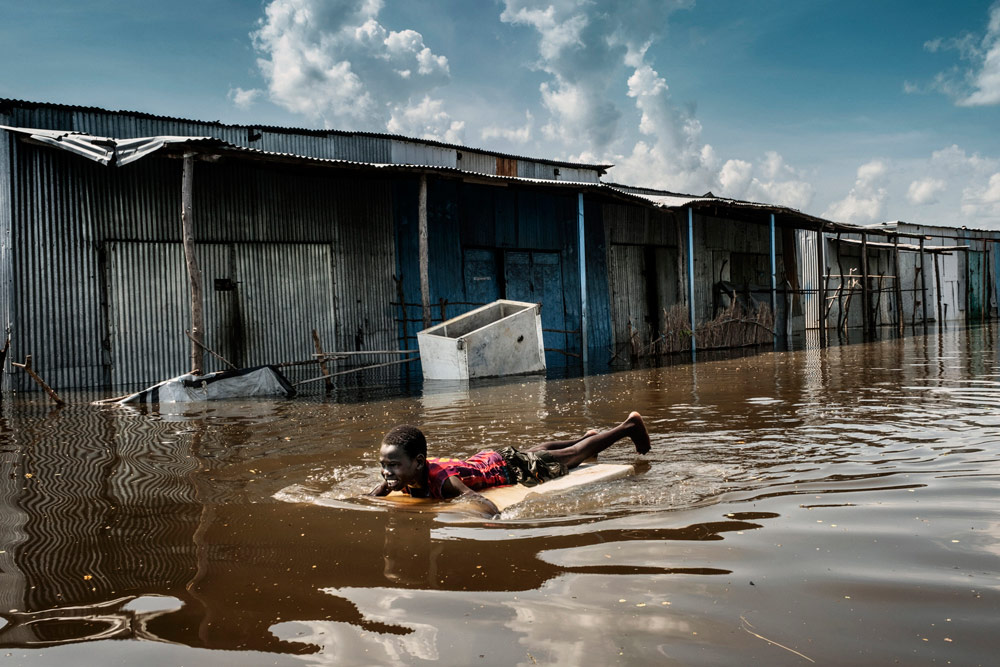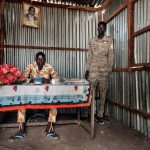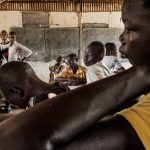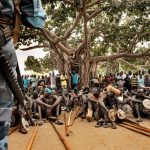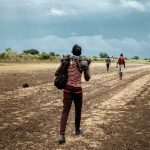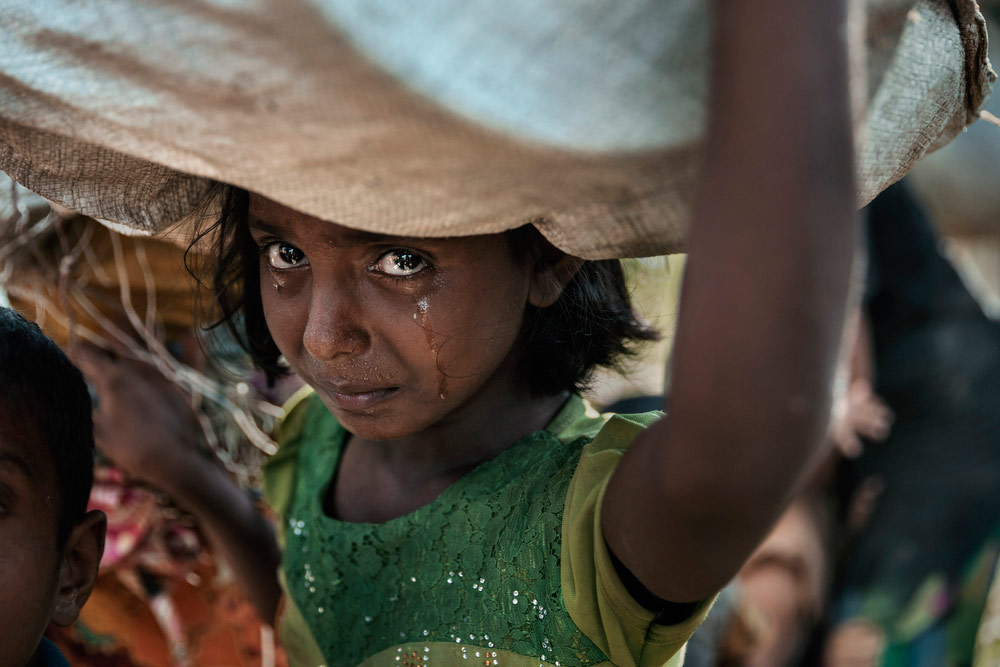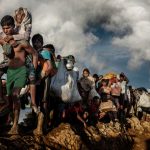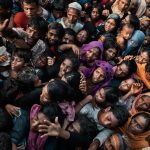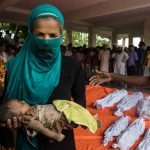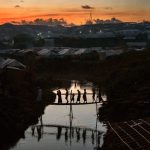
Deadline: February 28, 2019
Entry fee: $35 per series
Prizes: $500, $1,000, participation in the exhibitions
“The State of the World” is a new special contest of PX3 (Paris Photo Prize), to share important global stories, eyewitness accounts as told through the lens of the photographer; stories both happy and sad, inspiring and shocking, gentle and brutal; stories to focus your eyes and mind on issues that are current and crucial in our world.
With “The State of the World”, our goal is to bring uncensored news, directly from photographers witnessing events with the guarantee that they are not manipulated by the mainstream media or sensationalized for profit.
Categories
- Political impact
- War/Conflict
- Social documentary
- Environmental issues
- Heroes among us
- What a wonderful world
Website: https://px3.fr/state-of-the-world-photo-contest/
Some Series of Curatorial Selection 2018
Last Days of Mosul
© Zach Lowry, United States
“Last Days of Mosul” is a series of images shot in Mosul, Iraq between July 4th and July 20th, preceding and succeeding the announcement of liberation from the Islamic State. The images were shot while embedded with various divisions of the Iraqi armed forces, as well as the medical NGO Global Response Management. The photos capture the concluding liberation efforts in West Mosul’s Old City, from the Al-Nuri Mosque to the banks of the Tigris River.
Waiting In Limbo: Kashmir’s Half-widows
© Wei Tan, China
The violence of Kashmir’s armed conflict has given rise to a category of women known as “half-widows.” These are women whose husbands have ‘disappeared’ during the decades-long conflict or who have gone missing and are often presumed dead. Half-widows live their lives in limbo, oscillating between grief and hope. Even though there are no official records, it is estimated by the Association of Disappeared Persons (APDP) there are nearly 2500 half-widows in the Kashmir region.Since there is no proof of the husband’s death, half-widows are often deprived of any monetary compensation or benefits.The half-widows cannot claim pensions and widow relief until after a period of seven years. All of this combined makes the struggle for justice painful, endless and hopeless.
Insights
© Eric Goh Wee Seng, Singapore
Children stayed with their grannies in the primitive way of living, up in the mountainside of Yunnan, while their parents went to the city to earn a living. The living conditions of these country folks speak the simple way of enduring day after day. These children may have a vision to escape to the city to have a better future for themselves when they grew up.
Stuck In Serbia
© Vincenzo Montefinese, Italy
According to UNHCR, at the beginning of 2017, there are about seven thousand people stuck in Serbia. They are migrants in transit on the Balkan route looking for better life opportunities in Europe. Nearly two thousand people, mostly young people from Afghanistan and Pakistan, live in abandoned warehouses belonging to the railway station in Belgrade, Serbia. About 60% of them are minors unaccompanied by their parents. Some of them have just arrived – tired and frozen – from Macedonia or Bulgaria. Others were sent back/rejected by Hungary and Croatia, after having suffered from the border police violence while trying to cross the border. In such abandoned railway station warehouses people are living in inhuman conditions. They sleep on the floor, wrapping themselves with blankets given by volunteers. To protect themselves from cold temperatures reaching even minus fifteen degrees, they light fires with railway tracks wooden beams, plastic and waste of any kind, making the air toxic and unbreathable. Most of them prefer living in the old railways station warehouses, rather than moving to official camps for fear of being expelled by the government, waiting for the Balkan route to be opened again.
Silver Hands
© Valerie Leonard, France
There are many aluminum factories in Bangladesh where different types of pots are made from recycled and melted aluminum. To produce a bowl, or an aluminum kettle, one must first melt this aluminum, turn it into ingots, laminate it, and cut it into discs. Then comes the anodizing, a dangerous and toxic chemical process to produce a coating that will prevent objects from rusting. The aluminum discs are soaked in sulfuric acid and caustic soda. The smell is unbearable. Protected by a meager piece of cloth, women and men work all day for a 3 dollars a day salary. The discs are then formed manually with rotating machines to obtain kitchen tools. The workplace is very hazardous and he production of pots in these factories produces a lot of nefarious aluminum dust. Medical studies have shown that extensive exposure to such dusts could cause lung damages, as well as Alzheimer’s diseases.
The Wedding Parade
© Tien-chien Chen, Taiwan
Baraat, or groom’s procession, is the first thing in a traditional Indian wedding. The groom, with guests dancing around him, is transported on a white horse to the marriage venue. The traffic in the little town of Udaipur came to a complete stop this particular night when people related or unrelated to the wedding joined the parade.
London Observed
© Sergey Ponomarev, Russian Federation
London is the canary in the coalmine. As Brexit approaches, London faces a defining moment in its history and a unique challenge. It is a character in the broader drama of our changing world. What happens to London is going to tell us a great deal about the fate of the interconnected, globalized world as we know it today. One of the world’s largest and most culturally diverse cities, London’s distinctive demographic and economic differences set it apart within the UK. It is arguably more connected to New York, Moscow, Delhi or Paris than Manchester or Birmingham. In fact, London is a world within a city. It is the bustling city-state that primes the pump of the global financial system, a stage for global culture and sport, a hub for new technology, the noisy bullhorn of a globally powerful media.
Beckon Us From Home
© Sarah Blesener, United States
The dual messages of “America first” and “Americanism” can be found not only at the forefront of current political movements, but in the pages of literature and education taught at camps and clubs across the United States, where thousands of youth are choosing to spend their free time. While “Americanism” is a concept that has been around for decades, I am defining this “new Americanism” as a renewed embrace of the centuries-old theme of American exceptionalism and manifest destiny.In patriotic camps and clubs around the United States, roughly 400,00 American children are taught annually, often with military subtext, what it means to be an American. Here, in this microcosm of a changing nation, youth straddle the vulnerability of adolescence and the simultaneous stripping of individuality.
St Paul In Sicily
© Salvo Alibrio, Italy
The cult of St. Paul at Palazzolo Acreide (SR) is very ancient, probably probably several centuries, at the same election as the patron saint in 1688, instead of the Madonna of Odigitria, venerated in the church of San Sebastiano. Spectacular religious recurrenceSpectacular the “Sciuta” of Sao Paulo from 13.00 o’clock of the 29th of each year. A fascinating and surprising event for the visitor, who does not imagine what he is expecting, is catapulted in an instant in a mix of sounds, pyrotechnics, scenery, invocations.The story is repeated, for centuries Palazzolo celebrates majestically his patron. A moment, a moment of joy, for a community that despite the crisis, the adversity of everyday life, loves to find themselves in the shadow of the bell tower to celebrate.
Adrift
© Rui Caria, Portugal
In October I happened to be lucky enough to be able to do something that could take about 2 years to get authorized. I boarded a Portuguese Navy vessel to provide full coverage of the Frontex Triton mission. Today, despite having learned so much, I know less than I thought I knew before I went; Now I miss the difference between migrants and refugees. I have witnessed humanity and inhumanity. The expressions in the portraits I took, made me know that saving people is the only thing that matters, even when their fate is uncertain. What is happening there is the whole lie of the world. Failed states lead these people out to sea, usually at dawn, in a lying promise of better conditions in an Europe that is on the other side of the sea. The side of the sea that counts for almost everyone who finds himself world.
American Unrest
© Ronen Tivony, United States
The Mean Streets Of Huron
© Richard Steven Street, Streetshots, United States
Located in the southwestern corner of Fresno County, Huron lacks what most towns take for granted – a newspaper, high school, movie theater, pharmacy . . .Chamber of Commerce . . . Ugly, dusty, dangerous, corrupt, and impoverished, it is little more than a giant farm labor exploitation camp. No one has ever investigated Huron because it is too remote and dangerous. One mayor resigned after his car was shot up by assassins welding AK-47s. A councilwoman had her home bombed. Another mayor died in prison; his son was assassinated. Since 1988, Huron has had 26 different chiefs of police. For several years it had no police. Shrines to murdered gang members stand outside the bars, in lots, beside fences, and on the edge of Keenan Park. Police wage a loosing war against Bulldogs and Nortenos, the two gangs which control the drug trade and murder one another with impunity.
Mothers 2 Mothers
© Richard Ansett, United Kingdom
More than 200 babies are still infected with HIV each day in sub- Saharan Africa. Most of them acquire HIV from their mothers during pregnancy, childbirth, and breastfeeding. The charity Mothers2Mothers train, employ, and empower local mothers living with HIV, called Mentor Mothers, as frontline healthcare workers in understaffed health centres and within communities. Mentor Mothers provide essential health education and support to women on how they can protect their babies from HIV infection, and keep themselves and their families healthy. Mentor Mothers’ intimate understanding of the social and cultural challenges of living with HIV gives them a unique ability to form trusted relationships with other women, vital to helping them overcome their fears and make lifesaving decisions. These portraits shot at a Malawi health centre collaborate with women to explore the intimate bond between them in supporting each other.
Process
© Ramin Mazur, Moldova
Republic of Moldova has one of the highest amount of inmates per capita in Europe, including the highest rate of the longterm convicted. To shed a light on the issues of penitentiary system, Art Centre “Coliseum” made a play in most secured prison for lifers in country. For several months inmates were studying the craft of acting to perform on the same level together with professionals from National Theatre. All the inmates are the lifers and some of them stayed more than half of their life in prison. Through Hamlet/Process play directors Mihai Fusu and Luminita Ticu aimed to draw attention to conditions of lifers in Moldova, to penitentiary system as whole and most important people’s stereotypes. Inmates and their right to be changed is tabu topic among people and paired with poor economical conditions and corrupted institutions it leaves no chances for those who wants to be changed.
The Children’s War
© Peter Bauza, Brazil
For years they fought this brutal war in South Sudan. A war once triggered by rival political claims for power has plunged the youngest and poorest country in a world of chaos, escalating ethnic conflicts. Civil war, flight, illnesses, and starvation. Then the kids were saved. But now, tormented by hunger and resigned to the lack of life perspectives, many former child soldiers think about going back to war. Unicef says, more and more children are being forced to become active in this brutal conflict. The militia claimed to have recruited 19,000 child soldiers. It is estimated that, globally, some 250,000 boys and girls under the age of 18 are deployed in wars.Since the crisis erupted in South Sudan in December 2013, 4 million people have been uprooted from their homes due to war and severe food insecurity. Approximately 1.88 million people are displaced internally in South Sudan, 2 million fled to neighboring and an estimated 7.3 million are in need of humanitarian aid. The world invests more than US $1 billion annually in South Sudan, but the weapons and ethnic hunts aren’t coming to a halt.
The Unwanted, The Rohingya
© Paula Bronstein, United States
For years Buddhist majority Myanmar has struggled to deal with a deeply rooted hatred towards the Rohingya in western Rakhine state. A refugee emergency unfolded in late August after an attack on state security forces by Rohingya insurgents, triggering a brutal military crackdown that has forced more than half of the country’s 1.1 million population fleeing to neighboring Bangladesh creating the fastest cross-border exodus ever witnessed with over 700,000 new arrivals.Thousands of children who are traveling alone are at serious risk of trafficking and exploitation. Many traumatized refugees arrived telling stories of horror alleging rape, killings and the burning of hundreds of villages, which have been well documented by the media, along with the U.N and various human rights groups.
Next:
MESH Call For Entries – FOTOFILMIC

Share:

